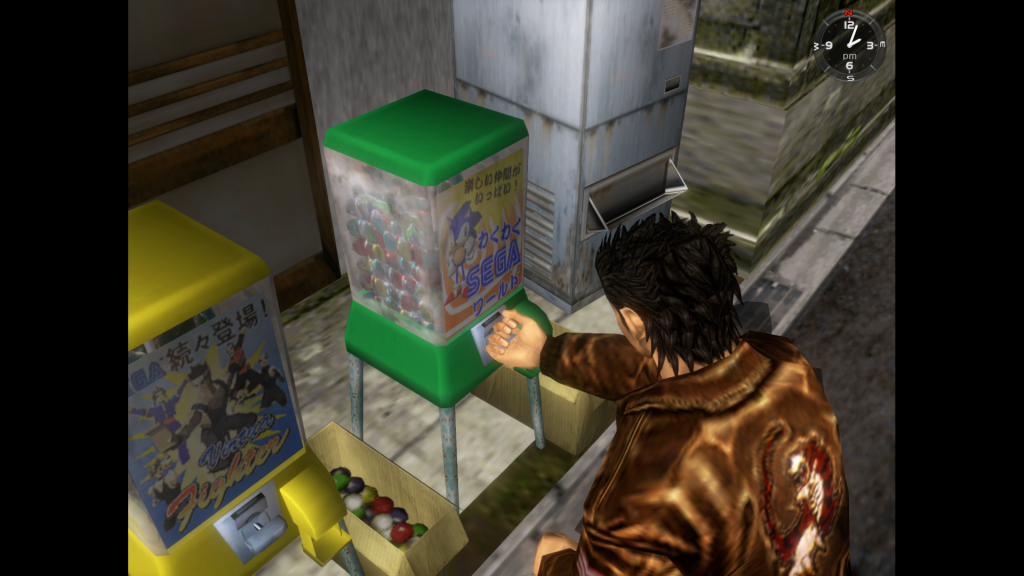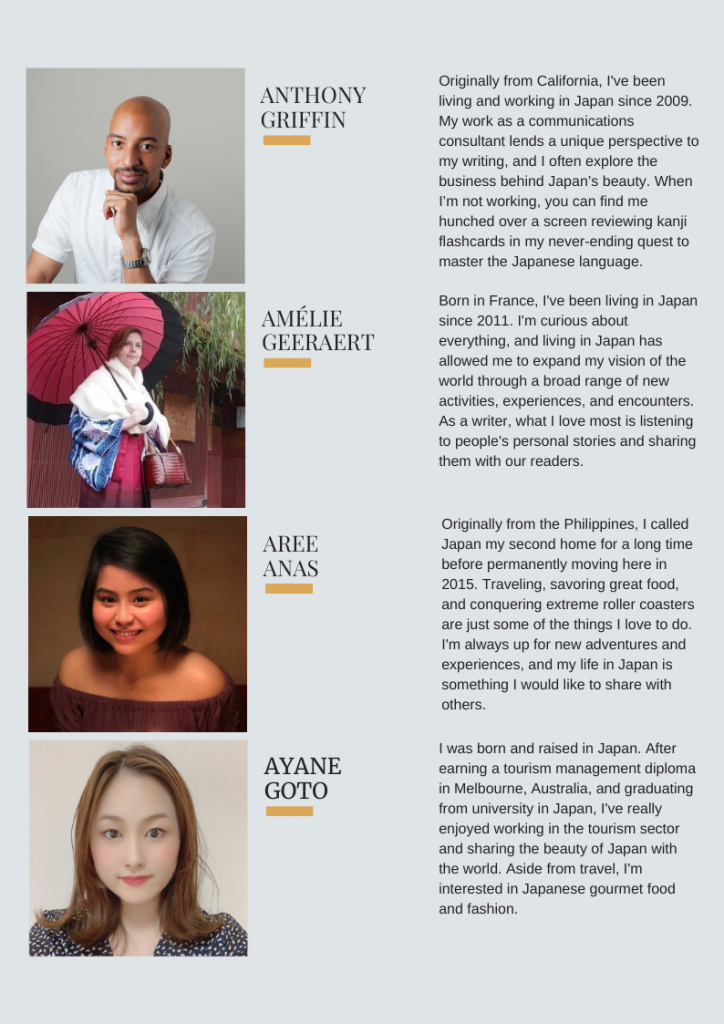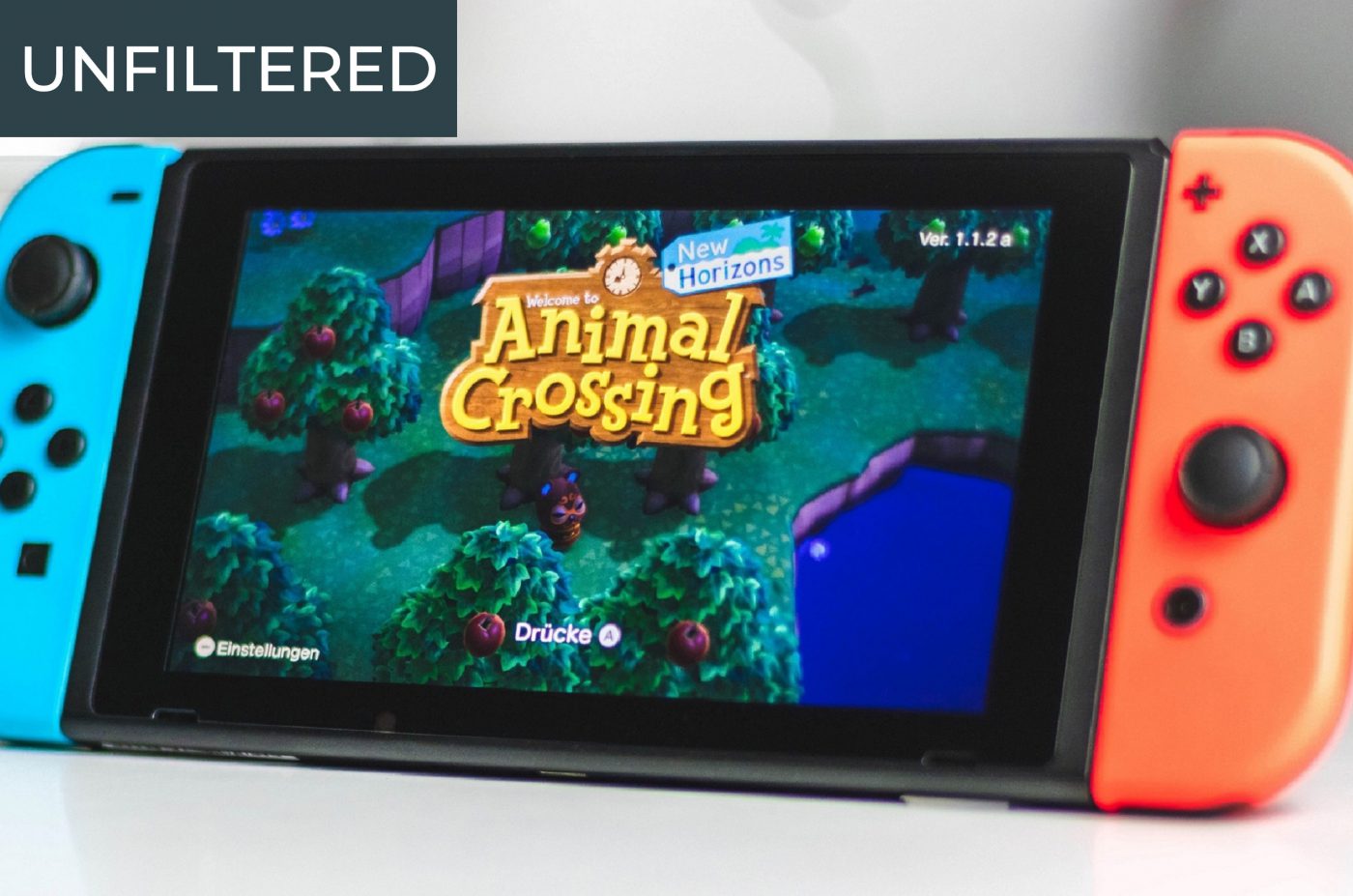One of my guiding principles in life is to wear my passions on my sleeve. Hobbies, interests, and passions can propel you to amazing places in life and can push you beyond self-imposed limits. In our latest edition of Kokoro Media Unfiltered, we explore the role that Japanese media and pop culture has played in each of our relationships with Japan.
The Allure of Anime

Amelie: In France, people from my generation, around thirty years old, could see a lot of Japanese animation, like Dragon Ball and Sailor Moon, on TV. Basically, all the little French children watched these shows, and it was a natural thing to see Japanese animation on TV. It just became part of our culture. We knew it was Japanese, but we didn’t really question it.
I guess that influenced me as a child, and I started enjoying manga later in middle school. That’s when I really started noticing cultural differences. For example, when I read stories that took place in high schools, I noticed how unfamiliar everything was. High schoolers in these stories had to remove their shoes before entering classrooms and attended fireworks festivals in the summer. Manga contained a lot of cultural hints, and that made me more interested in Japan. I think that’s typical for people my age.
Anthony: I think you lucked out regarding when and where you were born. I’m in my early 40s, and growing up in the U.S., we could see some Japanese animation, but it was heavily edited.
Amelie: Oh, I should say that animation was heavily edited in France too.
Anthony: It sounds like you had more shows to choose from, though. We had a few hit shows, but household names such as Dragon Ball and Gundam didn’t become mainstream and easily accessible until I was in college. It sounds like you had access to a lot more Japanese animation when you were growing up.
Amelie: Yes, we had a lot of content across many different channels.
Anthony: Despite having access to fewer shows, I was also heavily influenced by Japanese animation in my youth. A show called Robotech, known as Macross in Japan, is what stands out the most. Even after being edited, this show was still able to tell a mature space opera story. It focused on the relationships between the characters, and one of them even died. This was something unheard of in American animation of the time. American animation treated kids like kids, but Robotech focused on telling a narrative. Parents probably glanced at our TV screens and dismissed what we were watching as another cartoon. We knew, however, that we were actually watching something special. When you see something like that, you can’t help but wonder about the country and culture that it came from.
Aree: My first exposure to Japanese animation was a little different. Before I even realized that Japanese shows were on local Philippine television, my mom had already introduced me to Crayon Shin-chan on VHS tapes. I didn’t think about the show as being Japanese. I just treated it as a cartoon like any other. Years later, I realized that I could see more of these shows on local TV.
Anthony: So how did these shows impact you or spark your curiosity in Japan?
Aree: To be honest I never really got interested in Japanese animation. I just watched it on TV, but there was never a specific show that I made it a point to watch.
Music and Television
Anthony: Was there another form of media that had an influence on you?
Aree: Japanese music had more of an influence on me than anime or manga. These days, I like listening to Japanese pop, but the first Japanese song that I learned was anata ni aitakute. My mom told me to sing it for a talent show or something. So I learned that song without knowing what it meant. I learned the Japanese lyrics and just sang it. After that, I got interested in Japanese music and started learning the lyrics, even though I couldn’t completely understand them.
Anthony: Ayane, as someone who grew up in Japan, surrounded by Japanese media, it would be great to hear your perspective on this topic.
Ayane: Since I grew up in Japan, all of this is atarimae [taken for granted]. Actually, I didn’t watch anime or read a lot of manga on my own, but I was always watching TV. My parents tried to get me to watch the anime that was on TV.
Anthony: That’s unique—usually, it’s the other way around [laughs].
Ayane: It was a way to keep me quiet [laughs]. I remember Detective Conan, Studio Ghibli movies, and Chibi Maruko-chan.
Anthony: Is there any kind of media that has inspired you or, on the other hand, disappointed you?
Ayane: When it comes to the morning and evening news, I feel that Japanese shows focus only on Japan and America. When I was in Australia, the news focused on several different countries and I could learn a lot. Sometimes, it feels like Japanese news programs only focus on simple topics.
Connecting the Dots
Anthony: Amelie, circling back to your story, a lot of people around the world share our fascination with Japanese pop culture, but few actually come to live here. How did Japanese media play a role in your journey to Japan?
Amelie: I don’t know if it influenced me to get this far. After my first stay in Japan as a student, I returned to France. However, I realized I wasn’t ready to do so. I would have stayed in Japan one more year if I could have. I started to miss Japan a lot. So, while I was in France, I started exploring other types of Japanese media. I started watching popular Japanese dramas, like Hana Yori Dango. I guess that must have been around 2006 or 2007. I watched a lot of these shows because I missed listening to Japanese people speaking and having everyday conversations. I also didn’t want to lose the Japanese language that I had learned. This led to watching movies and listening to more music as well. All of this helped me increase my vocabulary.
I don’t know if this experience really played a role in my return to Japan, but it certainly helped me improve my Japanese language ability. It was an indirect way to study while enjoying the stuff I like.
Anthony: I can relate. Pop culture alone wasn’t enough to make me move to Japan. However, I will say that pop-culture, combined with studying the language in college, motivated me to vacation here—twice. Those two vacations are what inspired me to move here permanently. So, if I look back through my life, I can see a progression of elements that led me here. I can see that Japanese pop-culture, soft power, or whatever you want to call it, played a role in leading me here. Would you say that the things you enjoyed in your youth led you to study here in Japan?
Amelie: For sure—I was interested in Japanese culture because I liked manga and noticed cultural differences. And that’s why I started learning a little bit of Japanese. The reason I could become an exchange student is because one of my teachers had learned I was studying Japanese on my own. So it was all linked, in a way.
Finding Elements of Japan in Video Games

Anthony: Let’s explore the idea of entertainment exposing us to new cultures a little further. As I mentioned, when I was a child, we didn’t have access to a lot of Japanese animation or manga. However, we did have tons of Japanese video games to play, mainly on the Nintendo Entertainment System and Sega Genesis. Those games were my windows into Japanese culture, ingenuity, and creativity. I couldn’t help but develop a curiosity about where all of these scenes, themes, and experiences were coming from. Have any of you had a similar experience with Japanese games?
Amelie: I played a lot of videogames when I was in middle school and high school. This was during the era of Final Fantasy VII and Final Fantasy VIII—the good times. Everybody was crazy about these games back then. In France, girls who played video games were rare. Luckily, my best friend also played games too, so we could share our thoughts on their storylines. Playing these games felt like being in a different universe, and that probably got me interested in Japan.
Aree: When I was in grade school everyone was playing Harvest Moon. So I started playing it, and realized that I enjoyed it. Recently, I started playing Animal Crossing. As Amelie mentioned, these games reflect aspects of life in Japan. For example, catching bugs in summer is actually something that people do in Japan. Video games can be a great way to expose yourself to Japanese culture.
Anthony: Well said, Aree. If you pick the right games, you can find incredibly accurate depictions of Japan. I’m not sure if anyone is familiar with it, but there’s an old game called Shenmue that originally came out on the Sega Dreamcast. This game has such an accurate representation of daily life in Japan. Of course, it also has an adventure story, martial arts action, and so on. Regardless, I often tell people if you can’t see Japan in person, just play Shenmue, and you’ll get a good enough idea, at least until you can come visit.
Ayane: Regarding Aree’s comments on Animal Crossing, I didn’t realize that the game was actually expressing elements of life in Japan. I had just assumed that everyone knows all of the insects and shells that we like to collect. It’s interesting to learn that popular games in Japan can be popular in other countries as well.
Anthony: Absolutely—if you read about the people who create these games, Shigeru Miyamoto, for example, they usually inject elements of their childhood experience into their work. Once those games go global, the world is exposed to those childhood experiences. So many games out there are loaded with Japanese cultural references, and a lot of people might not realize that.
Final Thoughts
Anthony: Does anyone have any final thoughts, advice, or tips for our readers?
Amelie: Whatever you enjoy, just enjoy it. Don’t worry about what other people say. Sometimes, when you like something Japanese and you’re not from Japan, people around you might not understand your passion. Just ignore their comments, especially if you’re a younger person, like in high school.
Anthony: Well said, Amelie. These days, Japanese media and pop culture tend to be popular all over the world. However, even if that’s not the case where you live, if you enjoy something Japanese, just dive in. Seek out other people that share your interests because you never know where seemingly simple hobbies can lead you. They can open up so many doors in life: learning new languages, living abroad, and occupational opportunities that you could never imagine.





